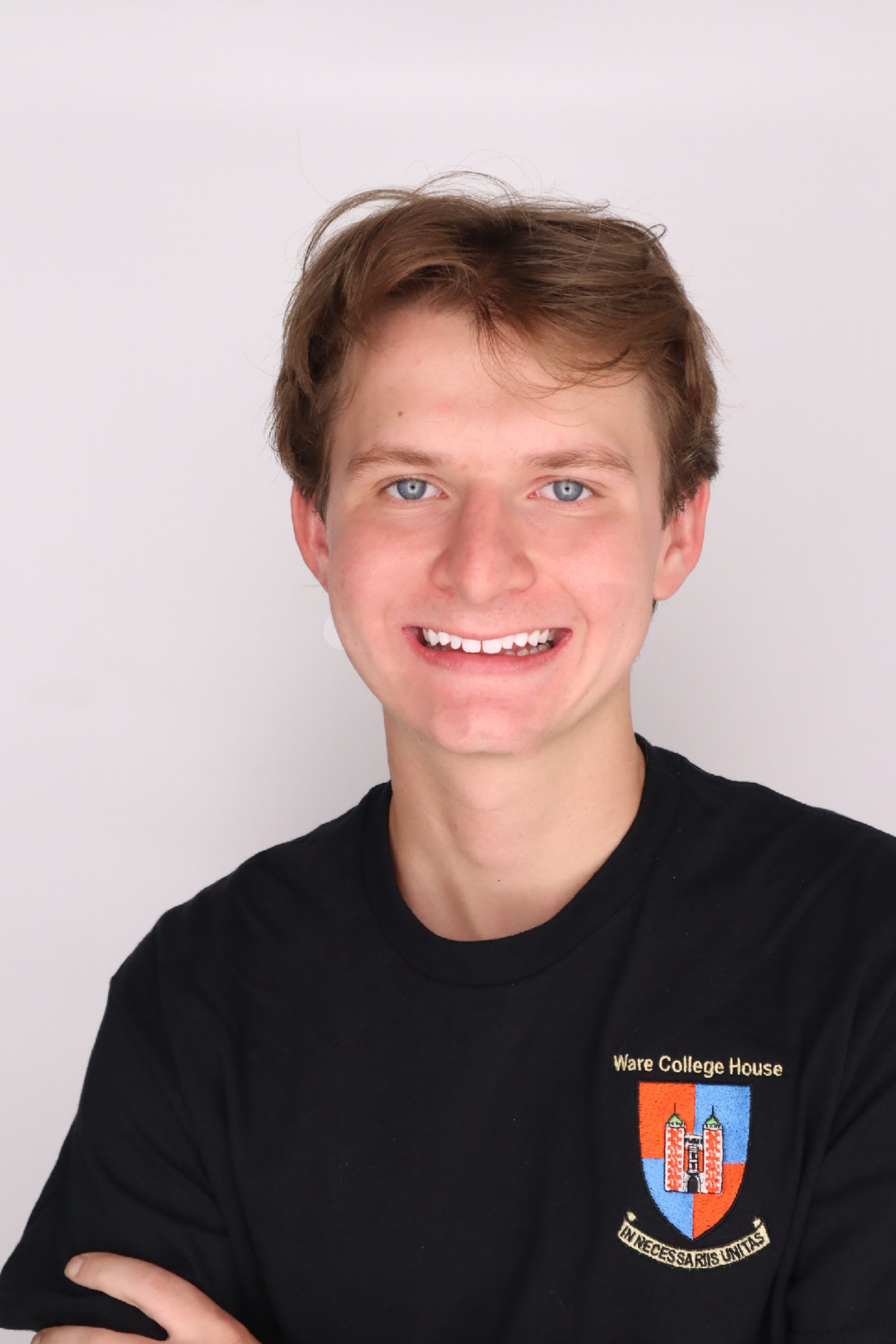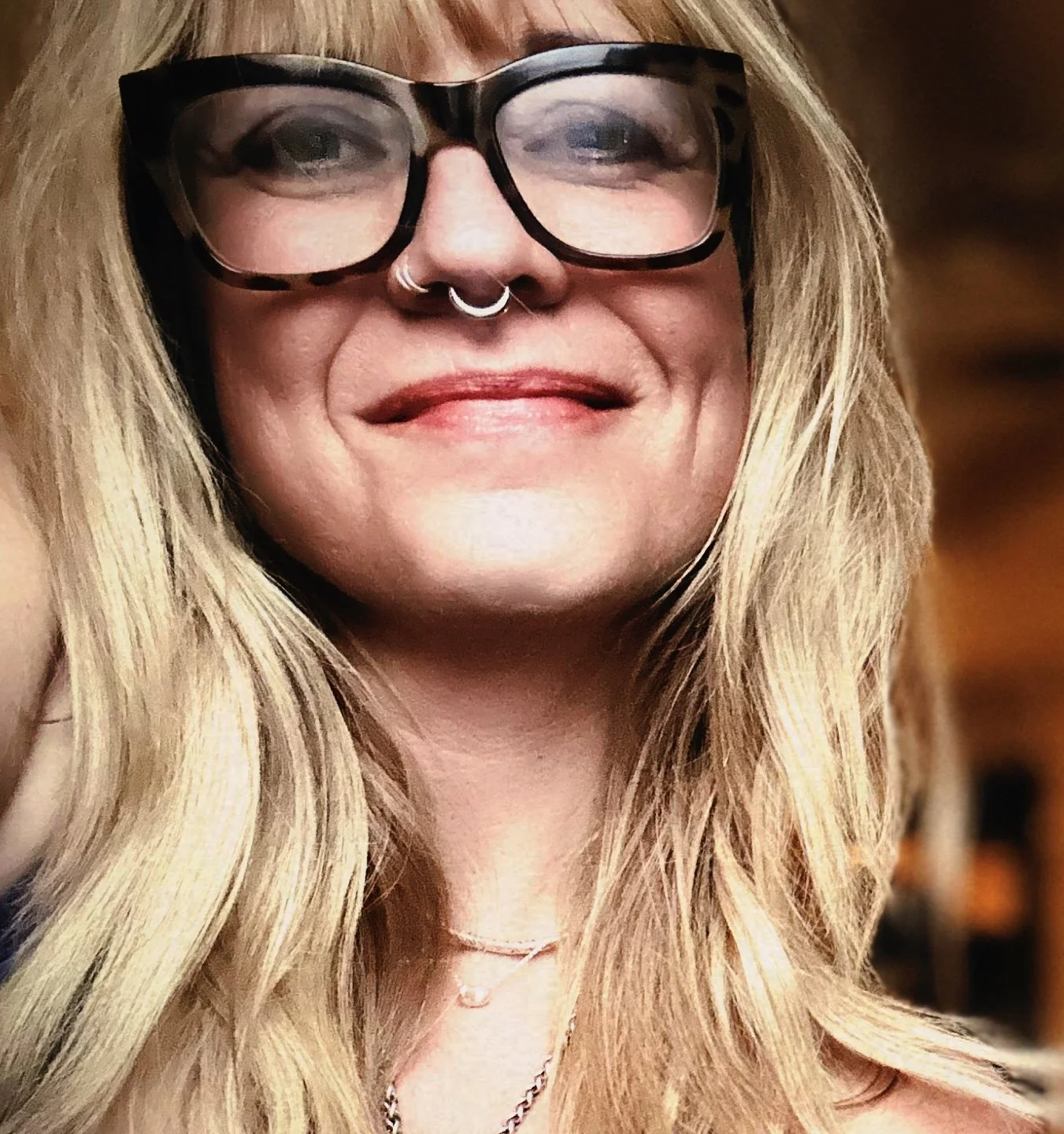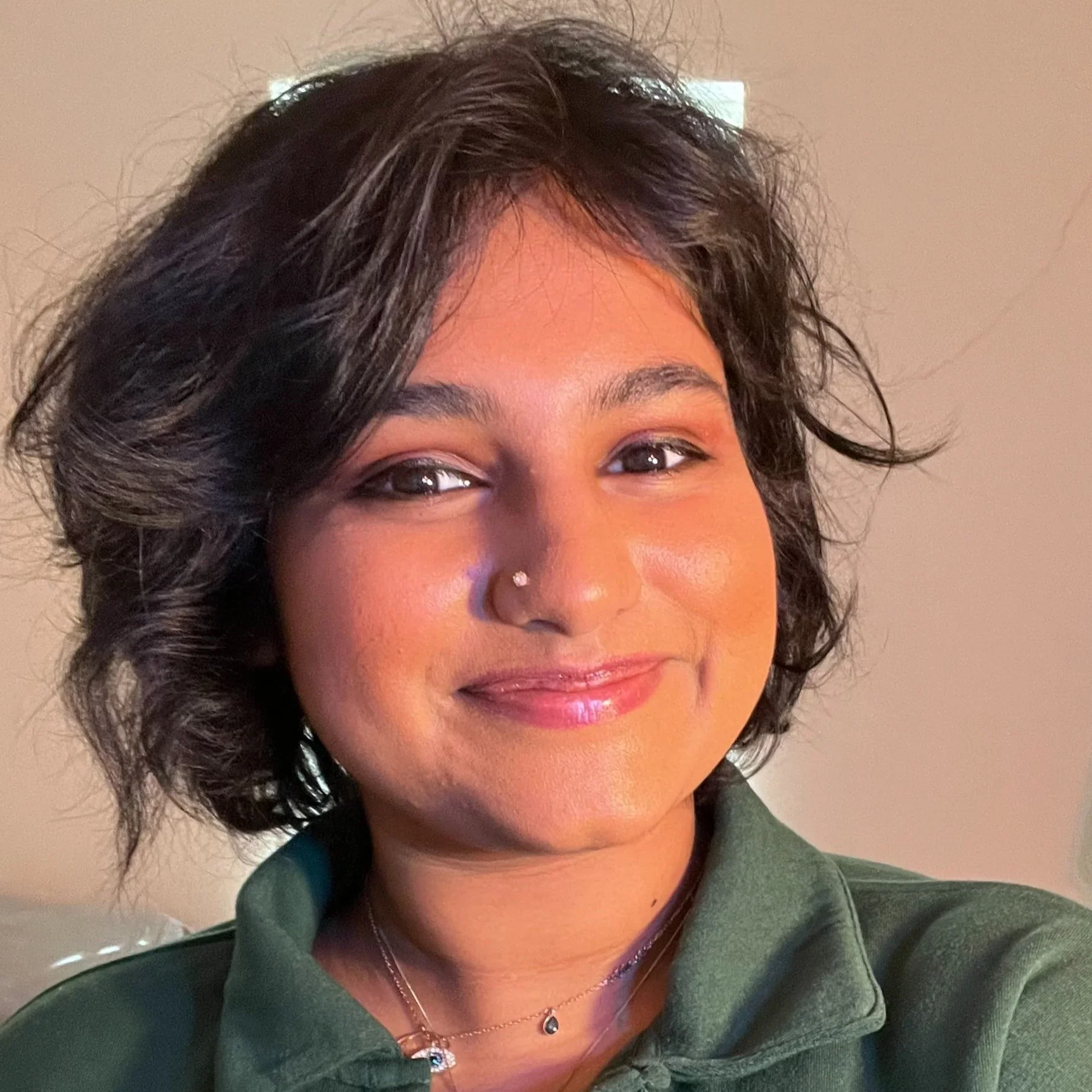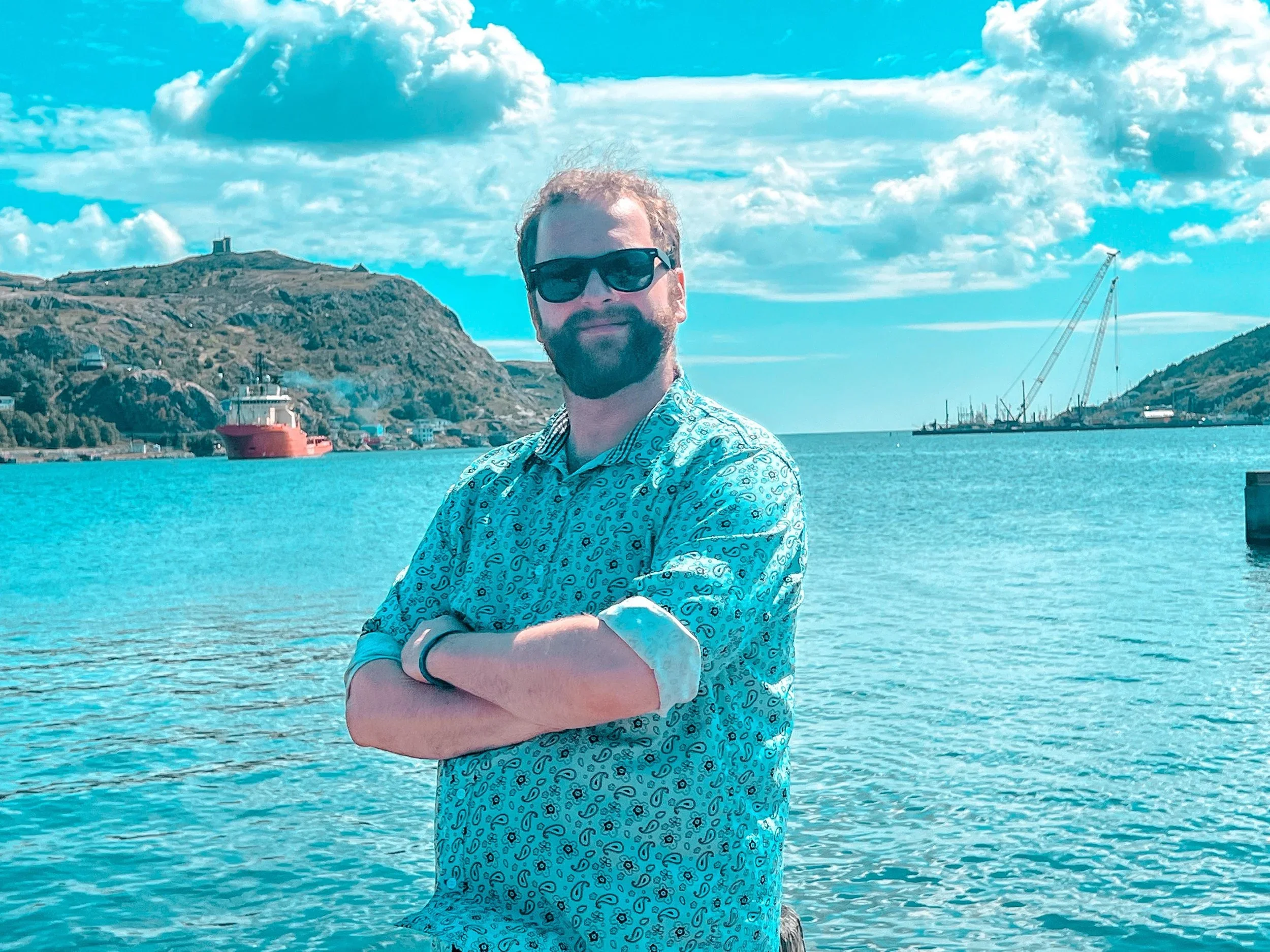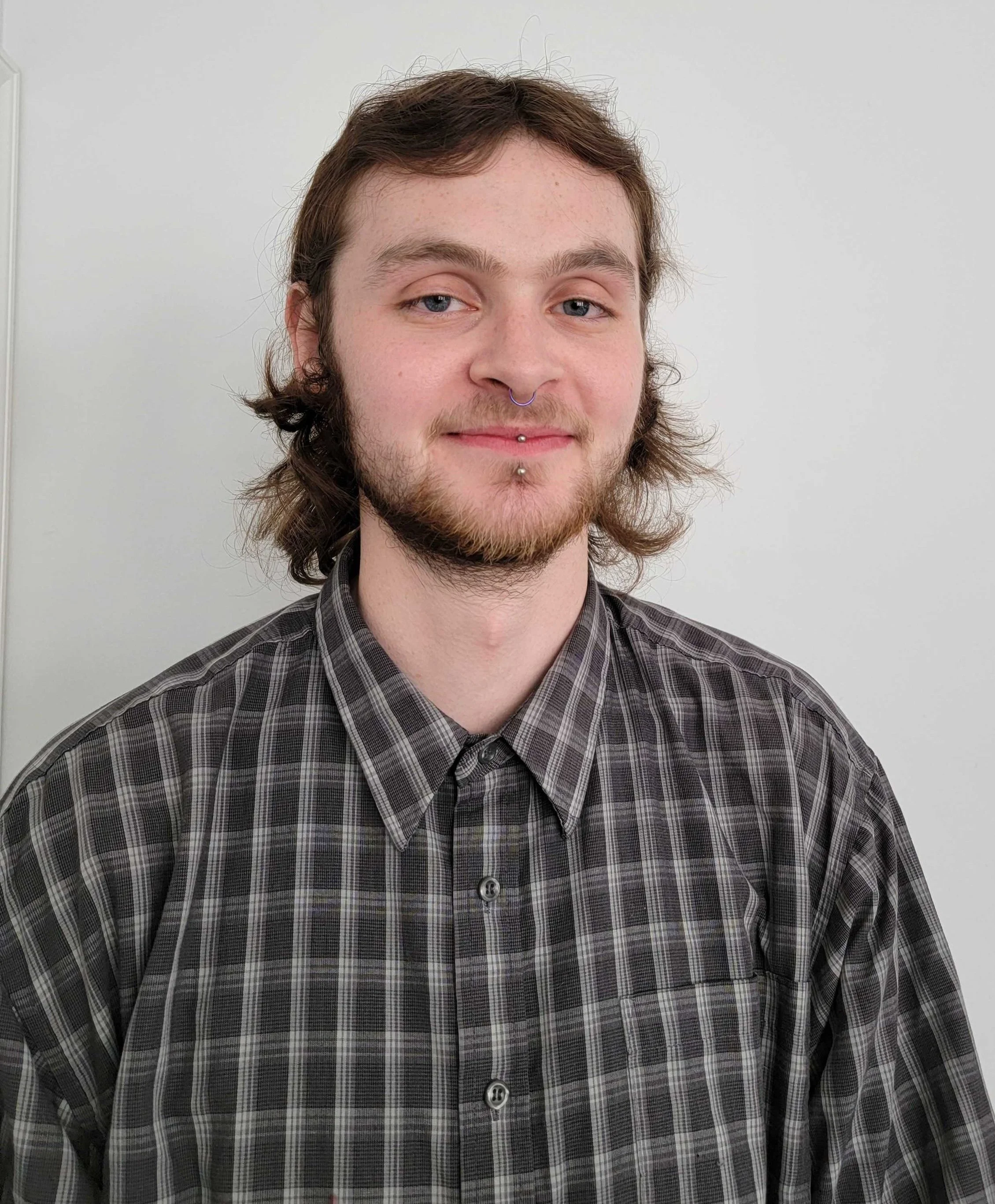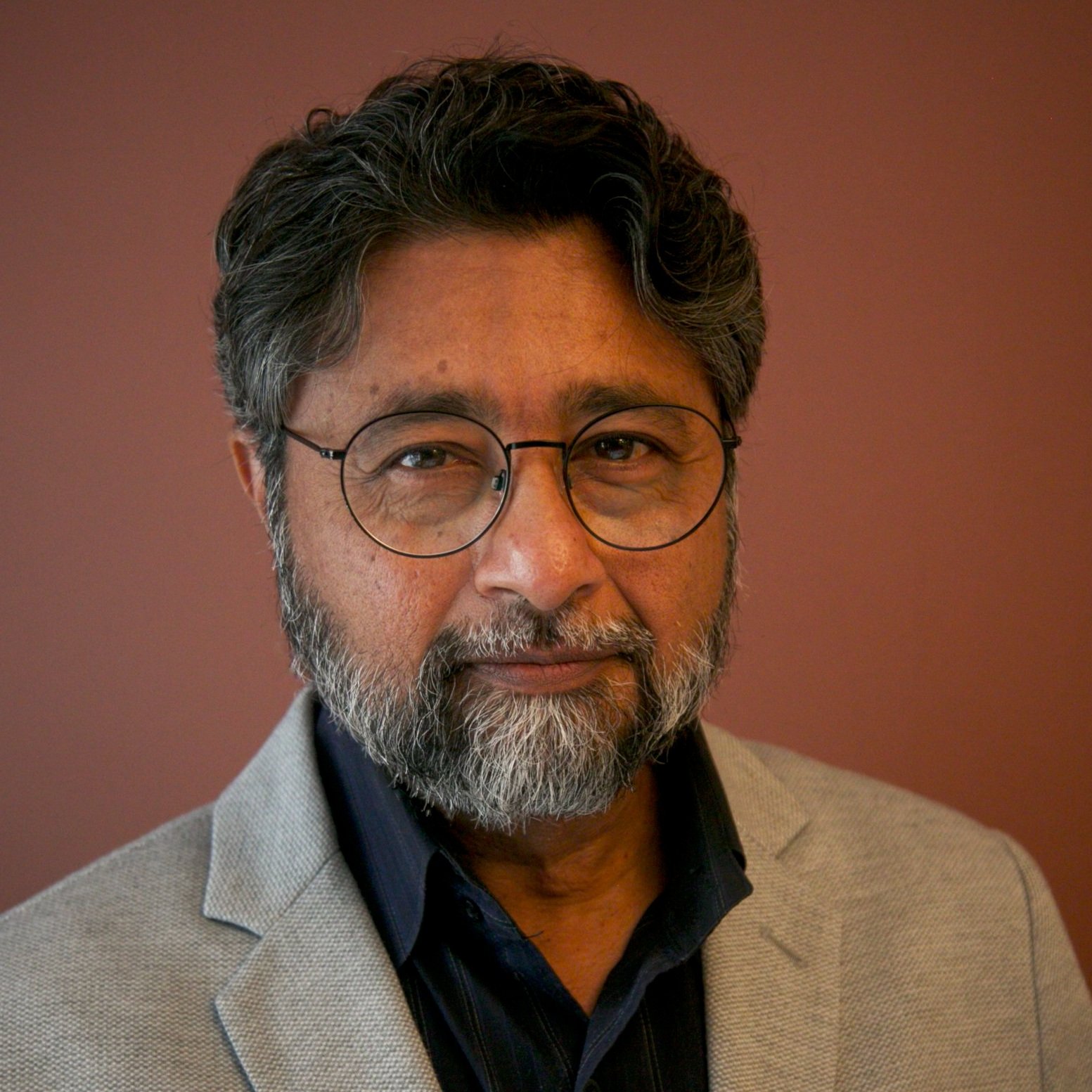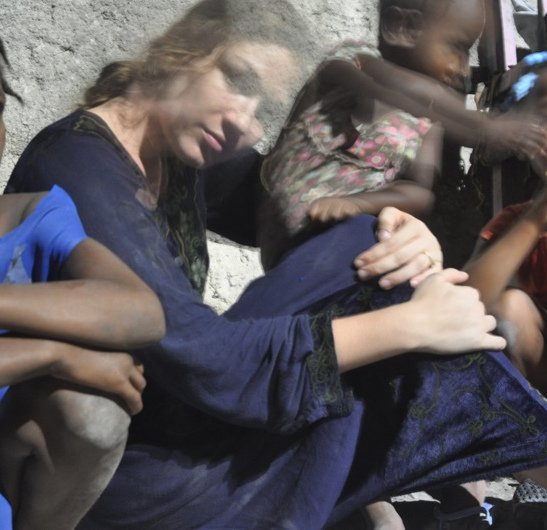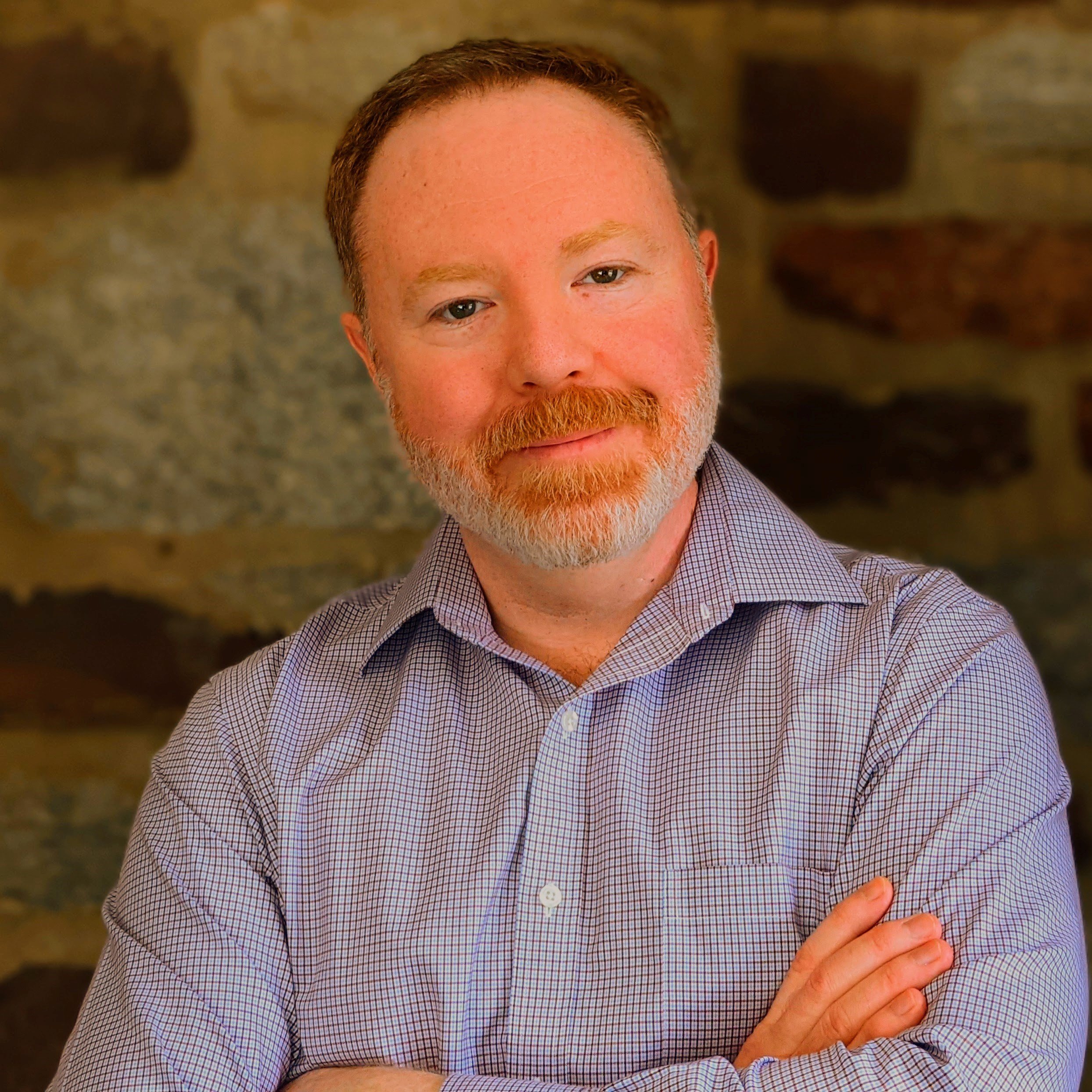Organizing Team
-
As the Director of Operations and Director of Community Engagement, Kelly Kennedy helps to coordinate the different demographics of the Penn Psychedelics Collaborative, including the PhilaDelic Conference. Outside of her work with the PPC, Kelly works as the Senior Research Coordinator in the Galápagos Education and Research Alliance, housed in the Penn Philosophy department. Her background is in Psychology and Philosophy of Science, and she is particularly interested in empowering individuals to view themselves as both experts and stewards of the natural world and their experience in it. In her spare time, Kelly contributes to the development of novel biotechnologies as a Psychometrics and Business Consultant for Sama Therapeutics.
Kelly Kennedy
-
Fourth-year medical student at the University of Pennsylvania’s Perelman School of Medicine, with a background in neuroscience.
Associate Director of the Penn Psychedelics Collaborative, where he helps organize the PhilaDelic conferences, including the upcoming 2025 Fall Forum in Philadelphia.
Researcher in interventional psychiatry, neuromodulation, and psychedelic medicine, with published and ongoing work ranging from ECT and ketamine to machine-learning studies of ritual medicines like Kambo.
Former psychiatric technician and co-founder of NAMI Perelman, bringing firsthand clinical and advocacy experience to his work.
Widely engaged in mentorship, having coached hundreds of premedical students in admissions and MCAT preparation, including pro bono work for underrepresented students.
Recognized for leadership and scholarship, including membership in the Gold Humanism Honor Society.
Aspires to a career in child and adolescent psychiatry, with a focus on expanding access to innovative, evidence-based treatments that help young people reconnect with meaning, identity, and hope.
T Peterson Wagner
Gaetano Lardieri
-
Mr. Lardieri has worked in the medical field since 1978, and has held several roles working with thousands of cancer patients in the fields of genetics and cancer research. His foundational work has led to many research papers being published in these fields and has also contributed as a co-author.
His career expanded over 26 years in cancer clinical research into the pharmaceutical space, where he obtained certifications in Project Management (MPM) and Lean Six-sigma. As a Project Manager Mr. Lardieri led a team which obtained FDA approval for a breast cancer drug.
In 2013 Gaetano transitioned his project management skills and clinical research background into the consulting space and advocated for legalization of cannabis and psychedelics as well as addressing the stigma associated with the war-on-drugs. Gaetano sits on several prestigious boards moving the needle forward for advocacy and clinical research for plant-based medicines. He is the New Jersey State co-Director for Minorities-for-Medical Marijuana (M4MM) and a Board Member at Coalition-for-Medical-Marijuana-NJ (CMMNJ). He serves as Senior Executive Advisor at Future Entheogenic Medicines (F.E.M.) as well as a co-founder and Managing Director at Quantum WellCare (QWC).These companies/organizations all have at their core to move the needle forward on plant-based medicine advocacy, research, and policy to address mental illness, the opioid crisis, and increase better health outcomes through medical health benefits. F.E.M. also has an Aerospace science division which was part of a team that launched a CBD nano-emulsion to the International Space Station (ISS) on Elon Musk’s SPX-27 rocket.
Gaetano has been a Licensed Massage Therapist since 1999.
Gaetano was born, raised and currently resides in Newark, New Jersey.
Cynthia Salarizadeh
-
Cynthia Salarizadeh is a serial entrepreneur and strategic communications specialist recognized as one of the leading voices shaping global conversations around cannabis, psychedelics, and other highly regulated industries. She is the Founder and CEO of Asha Media Group, an international communications firm powered by proprietary AI PR and marketing technology. Her work spans emerging sectors including cannabis, psychedelics, fintech, and AI. Throughout her career, she has earned a reputation for building narratives that not only strengthen brand valuation but also drive industry-wide movements.
Cynthia founded one of the first cannabis and hemp public relations firms, Salar Media Group, which was acquired by KCSA Strategic Communications after four years. She later co-founded multiple influential trade media platforms, including Green Market Report, a cannabis finance publication acquired by Crain’s Communications in 2021, and El Planteo, the leading Spanish-language cannabis news and cultural outlet in South America.
She is also recognized for her leadership in the infused cannabis beverage sector. Cynthia founded House of Saka, a luxury cannabis-infused beverage brand headquartered in Napa Valley, and co-founded Herbacée, a French-inspired cannabis beverage company that recently merged into Snoop Dogg’s infused beverage portfolio, Iconic Tonics.
Before her work in cannabis, psychedelics, and wellness, Cynthia managed national and international campaigns that elevated public awareness and reputations across diverse industries. Her portfolio includes work for the United Arab Emirates, the expansion of the Panama Canal, the Greater Houston Partnership, and Fortune 500 brands such as Harley Davidson, Nascar, and Carl Icahn’s American Casino & Entertainment Properties, as well as direct engagements with U.S. federal defense bodies.
Her expertise has made her a frequent contributor to leading media outlets, with her perspectives featured in CNBC, Newsweek, Forbes, Reuters, High Times, Entrepreneur, and others. She also serves on the Rolling Stone Culture Council.
Cynthia’s work has earned recognition across mainstream and industry platforms. Forbes named her among the 15 Most Powerful and Innovative Women in Cannabis, Benzinga listed her among 20 Women Set to Dominate the International Landscape in Cannabis, and High Times recognized her as one of the 20 Most Influential Women in Cannabis.
She is a graduate of the University of Pennsylvania, where she earned a degree in International Relations with a focus on Strategic Communications. This foundation in global politics, media, and cross-cultural strategy has been central to her ability to navigate complex regulatory environments and lead campaigns that resonate worldwide.
Today, Cynthia continues to advise global companies, launch brands, and build media outlets with a consistent mission: to elevate industries, empower entrepreneurs, and ensure new markets are built with integrity, credibility, and vision.
-
Michael Parella is currently a sophomore in the Nursing School at the University of Pennsylvania. He currently supports the PPC as Associate Director of Communications. Michael's other involvements include serving as the nursing chair on class board, working as a resident advisor, and being a mock trial captain.
Michael Parella
-
Jenny Rhubright is a psychedelic-assisted therapy advocate, end-of-life doula, and certified dementia care specialist. She focuses on safe access, policy reform, and destigmatization, with a particular commitment to advancing awareness of the neuro-protective potential of psychedelics for families impacted by terminal neurodegenerative diseases.
Jenny Rhubright
Bianca Schnarr
-
Bianca holds a master’s degree in Pharmaceutical Sciences: Psychoactive Pharmaceutical Investigation from the University of Wisconsin–Madison, graduating in May 2024. She also holds dual bachelor’s degrees in Biochemistry and Plant Biology, with a certificate in Medicinal and Economic Plants from Rutgers University–New Brunswick.
Bianca serves as an adjunct instructor at Thomas Jefferson University, Hudson County Community College, and NJ Cannabis Certified, for their Cannabis master’s, associate's, and certificate programs, respectively. She is a Registered Behavioral Technician, providing one-on-one therapy to children with autism. She is currently also interning in Dr. Sue Sisley's Research Institute, contributing to psychedelic clinical research.
Bianca interned in Dr. Matthew Banks' lab at UW-Madison, contributing to research determining the potential psychotherapeutic effects of psilocybin and related compounds in pre-clinical models. She has presented at the Rowan School of Medicine Psychedelic Medicine Conference, the Philadelic Conference, and NECANN Illinois, on the clinical applications and pharmacology of psychoactive compounds. She also served as a writer for The Psychedelic Pulse.
Shannen Gaffney
Nour Riad
-
Research Specialist at PSOM
Sarah is fascinated by neurogenesis and neurodegeneration, and believes the phenomena to be two sides of the same coin. Having been mentored by Jason Wallach, PhD—a pharmacologist who is developing novel psychedelics—Sarah studied internalization of the serotonin 5-HT2A receptor during her Master’s program. Currently, Sarah works at the Perelman School of Medicine at the University of Pennsylvania with Robert Mach, PhD, where her project involves aiding in the development of PET tracers for Alzheimer’s Disease, Parkinson’s Disease, and related proteinopathies. Sarah hopes to pursue a PhD in Neuroscience in the near future.
Sarah Sakeer
-
Philip is a Ph.D. student at the Philadelphia College of Pharmacy at Saint Joseph University. He graduated from the University of the Sciences in 2018 with a BS in Pharmacology and Toxicology. He worked at Eurofins Lancaster Laboratories Inc. for three years in quality control of biological raw materials for products used in Car-T therapy and the Covid-19 vaccine before returning to his alma mater to pursue his doctorate. He works under Dr. Jason Wallach and leads many projects, including radioligand binding at the 5HT2a receptor, functional biological assays, analytical chemistry of cannabinoids, physical chemistry properties of tryptamines, and virtual reality ligand & receptor modeling.
Phillip White
-
Malcolm is a Senior Undergraduate student at Drexel University, majoring in psychology with a minor in neuroscience. They are passionate about psychedelic research and psychedelic-assisted therapy, and they are interested in furthering their education in the field. Malcolm is also a part of Drexel's chapter of Students for Sensible Drug Policy, as well as a Behavioral Health Technician outside of Drexel. In their free time, Malcolm enjoys spending time outside, listening to music, and spending time with friends.
-
Taylor is a Psychiatric-Mental Health Nurse Practitioner and PhD student in Nursing at the Ohio State University. She completed her Bachelor's degree in Nursing at the University of Virginia and her Master's in Nursing at the University of Pennsylvania. She has over 7 years of experience working in pediatric psychiatry and is currently a Psychiatry Consult Liaison at the Children’s Hospital of Philadelphia. She is the Co-Founder and Director of Community Engagement for the Penn Psychedelics Collaborative and Lead Organizer for the PhilaDelic Conference. Taylor's research focus is on the intersections of childhood, family systems, and psychedelics. She believes that psychedelics have the potential to catalyze transformation when offered in a safe, knowledgeable, and compassionate container as well as expand creative exploration and expression. Taylor enjoys hiking with her doggo (Rosie), cooking with friends, painting, skiing, and listening to music in her free time.
Faculty Advisory Board
Anjan Chatterjee, MD
-
Anjan Chatterjee is Professor of Neurology, Psychology, and Architecture at the University of Pennsylvania and the founding director of the Penn Center for Neuroaesthetics. He received his BA in Philosophy from Haverford College, MD from the University of Pennsylvania and completed his neurology residency at the University of Chicago.
The past Chair of Neurology at Pennsylvania Hospital, Dr. Chatterjee’s clinical practice focuses on patients with cognitive disorders. His research addresses neuroaesthetics, spatial cognition, language, and neuroethics. He wrote The Aesthetic Brain: How we evolved to desire beauty and enjoy art and co-edited Brain, Beauty, and Art: Bringing Neuroaesthetics in Focus as well as Neuroethics in Practice: Mind, Medicine, and Society, and The Roots of Cognitive Neuroscience: Behavioral Neurology and Neuropsychology.
His editorial services have included: American Journal of Bioethics: Neuroscience, Behavioural Neurology, Cognitive and Behavioral Neurology, Empirical Studies of the Arts, European Neurology, Journal of Cognitive Neuroscience, Journal of Alzheimer’s Disease, Journal of the International Neuropsychological Society, Journal of NeuroPhilosophy, European Neurology, Neuropsychology, and The Psychology of Aesthetics, Creativity, and the Arts. He received the Norman Geschwind Prize in Behavioral and Cognitive Neurology from the American Academy of Neurology and the Rudolph Arnheim Prize for contributions to Psychology and the Arts from the American Psychological Association.
Dr. Chatterjee is a founding member of the Board of Governors of the Neuroethics Society, the past President of the International Association of Empirical Aesthetics, and the Behavioral and Cognitive Neurology Society. He serves on the board of The Global Wellness Institute and has served on the boards of the College of Physicians of Philadelphia, Haverford College, the Norris Square Neighborhood Project and the Associated Services for the Blind and Visually Impaired.
Salimah H. Meghani, PhD, MBE, RN
-
Dr. Meghani is a Professor of Nursing and Palliative Care in the Department of Biobehavioral Health Sciences and Senior Fellow of the Leonard Davis Institute of Health Economics at the University of Pennsylvania. She investigates palliative care, symptom management disparities, and social determinants of health in persons with cancer.
Dr. Meghani has an enduring commitment to advancing the field of palliative care. Between 2005-2007, she served on two statewide taskforces to Improve Quality at the End of Life for Pennsylvanians and Patient Life-Sustaining Wishes Advisory Committee to assess the feasibility of POLST paradigm in Pennsylvania. Between 2012-2014, she was appointed to serve on the National Academy of Medicine Study Committee that authored the landmark report, Dying in America: Improving Quality and Honoring Individual Preferences Near the End of Life. More recently, she was a member of the NAM Planning Committee on Pain and Symptom Management for People with Serious Illness in the Context of the Opioid Crisis. She is also a co-lead of the NIH/NINR-funded Palliative Care Research Cooperative’s Data Informatics and Statistics Core, leading national capacity building in palliative care research.
Dr. Meghani is a past Chair of the American Pain Society’s Pain Disparities Shared Interest Group, and currently serve on the Editorial Boards of Pain Medicine, Journal of Pain, Emergency Cancer Care, and is a Section Head Editor for the Journal of Pain Research.
Renyu Liu, MD, PhD
-
Dr. Renyu Liu is a professor at the University of Pennsylvania, a dual professor of Anesthesiology and Neurology at the Perelman School of Medicine at the University of Pennsylvania, a scholar at the Penn Global Health Center. He is a practicing physician at the hospital affiliated to the University of Pennsylvania. He is a faculty member of the Institute of Translational Medicine and Therapeutics, Perelman School of Medicine, University of Pennsylvania.
He is one of the founders and editor-in-chiefs of "Translational Perioperative and Pain Medicine" (www.transpopmed.org), the founder of Stroke 120, Stroke 120 Special Taskforce, Stroke 911, and Stroke 112, He is one of the founders and first secretary general of the Coalition of Special Taskforces for Stroke (CSTS), the co-chair of the World Stroke Organization Taskforce for Prehospital Care (WSOTPC) , the founder of Neurokappa Therapeutics. He is an expert on salvinorin A and its potential usage in neurological diseases. He plotted and produced (including the director role) more than 10 medical education micro-videos or micro-films, of which the stroke of 120 one-minute micro-videos were translated into more than 30 dialects in China. The micro-film "Love and Rescue Around" won the Shanghai Charity Micro-Film Excellent Works Award. The micro-film "Wakeup Stroke 120" won the Humanitarian Award and the Best Short Film Award at the 2021New York City International Film Festival and is selected by the 2022 World Health Organization Health for All Film Festival, and it has been widely reported and attracted attention. The movie poster was selected as the cover of a medical professional magazine. The Stroke 112 micro-video has been translated into multiple languages. Stroke 112 animation for Africa is awarded the Best Health Animation at the 2022 New York City International Film Festival.
-
Jackie Tileston (b. Manila, Philippines) spent her childhood as an itinerant “Third Culture Kid”, living in the Philippines, India, England, and France, before moving to the US. She has a B.A. from Yale University and an MFA from Indiana University. Her work has been featured in solo exhibitions in Chicago, Houston, Philadelphia, and Dallas, and group exhibitions at the Contemporary Arts Museum Houston, Art in General, the Painting Center and the Elizabeth Foundation for the Arts. Tileston is the recipient of the Core Fellowship Residency, the Pew Fellowship in the Arts, the Rockefeller Foundation Bellagio Residency, the Guggenheim Fellowship, and the Joan Mitchell Foundation Award and residency
Jackie Tileston
Carlo Siracusa, DVM PhD DACVB
-
I am a veterinarian specialized in behavior medicine, with PhD in Animal Health and Welfare (thesis on perioperative stress in dogs). I am currently an Associate Professor of Clinical Animal Behavior and Welfare at Penn Vet, where I am also the director of the Small Animal Behavior Service. My main duties are teaching and clinics, but I still do some clinical research. I am the immediate Past President of the American College of Veterinary Behaviorists.
Emily Hartwell, PhD
-
Dr. Emily Hartwell is a clinical psychologist at the Crescenz VA Medical Center and an Assistant Professor at the University of Pennsylvania. She received her PhD from the University of California, Los Angeles in 2018. After completing a MIRECC fellowship at the Crescenz VA, she began a CSR&D funded Career Development Award in 2022 which examines the genetic architecture of comorbid depression and substance use disorders.
Dr. Hartwell has gained a wealth of clinical research experience in the etiology and treatment of substance use and has published over 35 peer-reviewed articles. The overarching goal of her program of research is to enhance the understanding of the etiological mechanisms of disease development for comorbid psychiatric disorders, identify new targets for therapeutic intervention, and inform prevention efforts.
Dr. Michael Baime
-
Dr. Baime is a Clinical Associate Professor of Medicine at the University of Pennsylvania School of Medicine and the founder and Director of the Penn Program for Mindfulness. Since 1992, the Program has trained more than 10,000 people in mindfulness-based stress management. At Penn, Dr. Baime has developed and led numerous courses on mindfulness meditation and mind-body medicine.
This Program adapts traditional meditation-based techniques and makes them practical, easy to learn, and relevant to modern life. Participants learn how to use these mindfulness-based tools to manage stress, cope with change, enhance communication, deepen relationships, and cultivate personal and professional growth.
Program participants experience improvements in mood, learning, and health, and reductions in anger, anxiety, and depression. Research has documented that these techniques improve performance, memory and focus, and result in decreased burnout and stress at work and home.
Dr. Alissa Marie Jordan
-
Alissa Jordan is a multimodal cultural and medical anthropologist whose research focuses on questions of bodies, security, healing, and aesthetics. She investigates these questions using methods of experimental writing, collaborative nonlinear filmmaking and audio production, performance documentation, sensory mapping, and digital experimentation in Haiti, Ghana, and most recently, India.
In Haiti, her work engages with womxn as both healers and resistance workers in everyday life who root their power in a lived praxis of bodily care and altered states of consciousness drawn from the Afro-Creole philosophy of Haitian Vodou.
Common questions run through her diverse research: What is this world like and how can we move in it? What does survival look like and feel like, what does survival even mean when we are within bodies that die? How do bodies touch one another, repel one another, consume one another, and how do societies and politics structure and sanction these bodily relations?
-
Dr. O'Donnell is a Research Assistant Professor of Neurosurgery at U Penn and Director of Operations for the Center for Neurotrauma, Neurodegeneration, & Restoration at the CMC VA Medical Center. His preclinical research focuses on moderate-to-severe traumatic brain injury (TBI) with coma and tissue engineering approaches to regenerative medicine.
John C. O'Donnell, PhD
-
Dr. Ghose’s work focuses on structural interventions in the areas of incarceration, substance use, homelessness and HIV, both at the domestic and international levels. His research examines the manner in which contextual factors such as housing, community mobilization, access to mental health care, and organizational characteristics influence substance use and HIV risk. He is currently collaborating with the Department of Health and Mental Hygiene, New York, The World Bank, and the United Nations on initiatives to end AIDS by 2030 through structural interventions that address the social drivers of risk in marginalized communities around the world.
Dr. Ghose is a founding member and CEO of The Center for Carceral Communities (CCC), a collective of service providers and people with a history of incarceration. CCC collaborates with the Community College of Philadelphia, the Mural Arts Program, as well as judges and parole officers in the criminal justice system to re-engage people who have been released from incarceration. He has developed the CHATS model, a cognitive behavioral group therapy intervention that has been implemented with sex workers suffering from depression, people living with HIV who need to adhere to their medication, and released prisoners dealing with substance use issues.
Dr. Ghose works with collectives of sex workers, homeless transgender communities, survivors of natural disasters, and substance users in places such as Philadelphia, New York, Puerto Rico, Haiti, and India to examine the effectiveness of social movement mobilization in reducing HIV risk. He has worked on the Gates Foundation-funded Parivartan HIV intervention project with sex workers in India, and is currently collaborating with sex work collectives in India, New Jersey and Philadelphia to examine the manner in which global movements strategize around health in order to resist marginalization. He is the founding director of the Institute of Sex Work Research and Action in Philadelphia which engages in participatory research with sex work communities around issues of safety, legality and health.
Dr. Ghose’s projects have been funded by the National Institutes of Health, the Centers for Disease Control and Prevention, the Substance Abuse and Mental Health Services, the MAC AIDS Foundation, the Robin Hood Foundation, the Department of Health, Philadelphia, and the Department of Health and Mental Hygiene, New York. He has developed and taught classes on the foundations of social work practice, group therapy, postcolonial social work practice in India, practice with substance users in Puerto Rico, and social work practice in the Affordable Care Act era. Dr. Ghose has served as Chair of the MSW governance committee, the first year Foundations sequence, and the Racism and Social Change sequence.
Toorjo Ghose, MSW, PhD
Justin McDaniel, PhD
-
McDaniel's research foci include Lao, Thai, Pali and Sanskrit literature, art and architecture, and manuscript studies. His first book, Gathering Leaves and Lifting Words, won the Harry Benda Prize. His second book, The Lovelorn Ghost and the Magic Monk, won the Kahin Prize. His third book, Architects of Buddhist Leisure, was supported by grants from the NEH and Kyoto University. He has two new books forthcoming -- Wayward Distractions: Studies in Thai Buddhism (National University of Singapore and Kyoto University Presses) and Cosmologies and Biologies: Siamese Illuminated Manuscripts (Holberton).
He also has published edited volumes on Asian Manuscripts and Material Culture, Buddhist Biographies, Buddhist Art, Buddhist Ritual, Buddhist Literature. He has published over 100 articles and book reviews on a wide variety of subjects in Buddhist Studies, Material Culture, and Religious Studies. He also has forthcoming work on the study of Human Flourishing and the Discipline of Religious Studies. He has received grants from the NEH, Mellon, Rockefeller, Fulbright, PACRIM, Luce, the SSRC, among others.
He is the co-editor of the journals: Buddhism Compass, Journal of Lao Studies, and Associate Editor of the Journal of Asian Studies. He has won teaching and advising awards at Harvard U, Ohio U, the University of California, and the Ludwig Prize for Teaching at Penn. He was named one of the top ten most innovative professors in America by the Chronicle of Higher Education in 2019 and his work on pedagogical methods in the controversial courses Existential Despair and Living Deliberately have been featured on NPR, Huffington Post, Washington Post, and many other venues.
In 2012 he was named a Guggenheim Fellow and in 2014 a fellow of Kyoto University's Center for Southeast Asian Studies. His forthcoming work includes edited books on Thai Manuscripts, Buddhist Biographies, and Buddhist ritual. He has presented public and scholarly talks in over twenty different countries. He welcomes student and research questions on these subjects and sundry.
Jeffrey Vadala, PhD
-
Jeffrey R. Vadala holds a Ph.D. in Anthropology (University of Florida 2016), an M.A. with a focus in Archaeology (California State University Los Angeles 2009), and a Bachelor of Science (University of California Riverside 2005). Currently, he is working on a variety of anthropological and digital humanities-related research projects. In addition to socio-cultural anthropological research (detailed below), Jeffrey Vadala studies ancient Maya sites in the Yucatan and Northern Belize. At the site of Cerro Maya (formerly known as Cerros Belize), Jeffrey Vadala’s research used virtual reality analytical methods, Bayesian statistical modeling, assemblage theory and new sociological theory to characterize the development of early Maya material practices, architectural calendar systems, and social orders.
Most recently, Vadala has developed and refined a new chronological method of generational Bayesian modeling. In contrast to commonly used chronological approaches that label and track periods of history in 100-200 year increments, the generational Bayesian method of chronology building recontextualizes site history in terms of social generations. Although the Preclassic site of Cerro Maya has no indigenous recorded historical records (unlike the Classic period sites), this new chronological method allowed Vadala to examine the social history of Cerro Maya in a manner that approaches the historical precision found in examinations of later periods of Maya history that were dated with glyphic evidence. While ethnographically exploring contemporary seasonal rituals in the Yalahau region of Quintana Roo, Vadala also discovered numerous Maya sites bordering wetlands. As evidenced by their settlement organization, astronomical alignments, and material indicators of wetland resource management, these sites were uniquely adapted to the seasonally pulsating wetlands.
Using a cultural anthropological lens, his current research also examines contemporary social processes that create cybernetic identities and new forms of social organization within burgeoning virtual reality online communities. Beyond research, Jeffrey Vadala has used virtual reality as a teaching tool to bring students (Hampshire College, University of Florida, Stetson University, The College of New Jersey) to ancient sites while allowing them to explore and create their own spatial analytical theories regarding the usage of ancient space and metaphysical beliefs.
-
Dr. Cichon is interested in the cellular and circuit mechanisms of rapid-acting antidepressants, e.g. ketamine and psilocybin.
Joseph Cichon, MD, PhD
Michelle Joy, MD
-
Michelle Joy received an ScB in Cognitive Neuroscience from Brown University in 2007, an MD from Yale School of Medicine in 2012, and completed her Psychiatry Residency at the University of Pennsylvania in 2016 and Forensic Psychiatry Fellowship in 2017. She provides clinical care in serious mental illness, transgender medicine, and emergency psychiatry and has a civil, administrative, and criminal forensics practice. She is a clinical associate professor of psychiatry at Penn, Director of Behavioral Health Emergency Services at her hospital, and also teaches in the Drexel PA program. She is trained in MDMA- and ketamine-assisted psychotherapy and writes and speaks about the intersections of psychedelic medicines and ethics.
Joe Moore
-
Joe Moore is the co-founder and CEO of Psychedelics Today, one of the world’s leading media and education platforms exploring the science, culture, and business of psychedelics. Since launching in 2016, Joe has hosted hundreds of interviews with researchers, clinicians, entrepreneurs, and thought leaders shaping the modern psychedelic movement.
With a background in philosophy, breathwork facilitation, and transpersonal psychology, Joe’s work bridges rigorous inquiry with grounded practice. He co-created Vital, a year-long training program for professionals working in and around psychedelic-assisted care, and continues to expand Psychedelics Today’s educational ecosystem through online courses, events, and consulting.
Beyond his media work, Joe is a long-time facilitator of Transpersonal Breathwork (Grof style), leading workshops in Breckenridge, Colorado and internationally. He’s also a passionate advocate for cognitive liberty, ethical entrepreneurship, and regenerative business models in the emerging psychedelic economy.
Through Psychedelics Today and its growing community, Joe aims to foster nuanced dialogue, critical thinking, and accessible education that empower individuals and organizations to navigate this rapidly evolving field with integrity, curiosity, and care.





